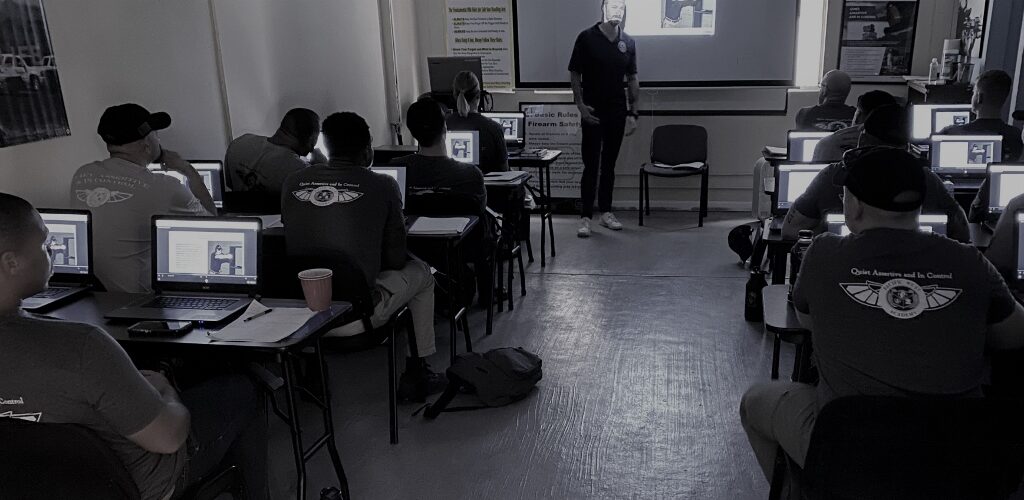

The Top 10 Skills Essential for Modern Executive Protection Specialist
The Top 10 Skills Essential for Modern Executive Protection Specialist
Today, the role of an Executive Protection Agent has evolved, and agents are now required to possess a diverse set of skills to combat the ever-rising level of threats, more than ever before. We are going to explore the 10 skills that every modern agent should possess to effectively protect their clients and have longevity in their career.
1. Situational Awareness
One of the most important skills for any agent is situational awareness. Agents must maintain a constant awareness of his/her environment to proactively detect any potential danger. It is vital to understand what is within the baseline in any particular environment and what is outside of the baseline. The most seasoned agents can identify “Pre-Incident Indicators” and make arrangements either during their advance or field coverage and make the necessary adjustments to ensure the operation is without incident. Executive Protection, by design, is meant to be proactive. So having the ability to foresee threats is essential.
2. Physical Readiness and Defensive Tactics
Executive protection has always required high physical readiness and a strong knowledge of defensive capabilities. A proper physical appearance has often been misinterpreted and associated with being physically capable of carrying out defensive tactics/measures. While it does serve as a visual deterrent, it does not inherently mean you can effectively protect your client. Maintaining a balance of physical readiness, strong knowledge of martial arts (Boxing, Jiu Jitsu, Kali, etc.), and advanced firearms techniques (Pistol & Rifle) are all necessary for any agent to have the effective tools to respond appropriately to a threat in today’s world. Additionally, all training is perishable and requires discipline and consistency to maintain a high level of actual readiness so these skills must be maintained through consistent training.
3. Advanced Driving Skills
When it comes to transporting clients, there are numerous of inherent risks associated. Training in advanced driving techniques or courses (EVOC) such as evasive maneuvers and defensive driving is essential for any agent transporting their clients in a vehicle safely. These skills enable agents to recognize potential threats, make adjustments during transportation, and avoid risks associated with weather conditions and road hazards. Vehicle transportation has historically been the highest risk to clients. Given the amount of uncontrolled space and unknown variables. Additionally, vehicle departures and arrivals contain the highest probability of attack given the potential predictability and exposure.
4. First Aid and Emergency Medical Response
Agents are typically the first to arrive at the scene of a medical emergency whether in the field or on a residence, thus, it is imperative to have strong knowledge of first-aid and emergency medical procedures. Knowing CPR, wound management, and other life-saving techniques such as TECC (Tactical Emergency Casualty Care) is critical where every second counts for treating severe injuries and potentially saving lives. Depending on the location, medical response may not be readily available in that area or country making the agent the primary first responder and his/her medical skills could potentially be the difference between life or death.
5. Communication and Interpersonal Skills
An agent must have the ability to communicate effectively with the client, other agents, and staff. Ensuring all pertinent information is passed on clearly and concisely to all personnel is the cornerstone of our industry. Additionally, possessing a high level of interpersonal skills is essential to understanding what the client’s needs are, navigating conflicts, and obtaining compliance from external entities related to the client’s coverage such as third-party security organizations, law enforcement, and media.
6. Risk Assessment and Management
Agents must possess the ability to identify and assess all potential risks to the client during his or her transportation, travel, and environment. Furthermore, he/she must proficiently manage those potential risks and effectively set measures in place to mitigate them. This is a proactive skill given that risks are ever evolving and vary depending on the environment.
7. Knowledge of Legal and Ethical Standards
Understanding the legality related to the use of force, legal privacy, and ethical practices and the laws that govern them is the knowledge that will protect every agent from any potential legal action against them as well as their client. Understanding the local laws allows the agent to better assess his/her response to any threat or risks.
8. Technology Proficiency
In the modern world, technology has become an important component of our industry and has morphed how we view protection. The threat is no longer just physical and has evolved to include cybertechnologies. Advanced surveillance technology such as drones, hacking, etc. are now more prominent in our industry than ever. The implementation of these technologies has forced modern agents to broaden their risk assessments and remain proactive when setting measures to mitigate the potential use of this technology against their clients.
9. Cultural Sensitivity and Discretion
Agents will potentially work with clients of different cultures which will include working in different cultural environments. Cultural sensitivity is essential to understanding customs and practices related to any specific culture you’re operating in. Furthermore, this skill will assist the agent when conducting their risk assessments giving them the ability to distinguish between cultural norms and actual threats.
10. Continuous Training and Adaptability
Lastly, as geopolitics and technology continue to evolve, the potential for new developing threats is at an all the time. Every agent must maintain an alert and proactive attitude about learning and developing his/her professional skill set. This adaptability enables the agents to change their strategies as circumstances change to provide the necessary security at any given time.
Conclusion:
Programs such as those offered by Pacific West Academy are a great source to help all levels of agents develop the necessary skills. If you are interested in becoming an Executive Protection Agent or would like to improve your skills, please visit our website www.pwa.edu for more information on our upcoming classes
